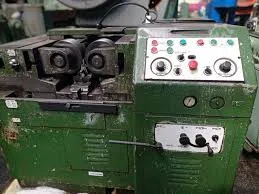
-
 Afrikaans
Afrikaans -
 Albanian
Albanian -
 Amharic
Amharic -
 Arabic
Arabic -
 Armenian
Armenian -
 Azerbaijani
Azerbaijani -
 Basque
Basque -
 Belarusian
Belarusian -
 Bengali
Bengali -
 Bosnian
Bosnian -
 Bulgarian
Bulgarian -
 Catalan
Catalan -
 Cebuano
Cebuano -
 Corsican
Corsican -
 Croatian
Croatian -
 Czech
Czech -
 Danish
Danish -
 Dutch
Dutch -
 English
English -
 Esperanto
Esperanto -
 Estonian
Estonian -
 Finnish
Finnish -
 French
French -
 Frisian
Frisian -
 Galician
Galician -
 Georgian
Georgian -
 German
German -
 Greek
Greek -
 Gujarati
Gujarati -
 Haitian Creole
Haitian Creole -
 hausa
hausa -
 hawaiian
hawaiian -
 Hebrew
Hebrew -
 Hindi
Hindi -
 Miao
Miao -
 Hungarian
Hungarian -
 Icelandic
Icelandic -
 igbo
igbo -
 Indonesian
Indonesian -
 irish
irish -
 Italian
Italian -
 Japanese
Japanese -
 Javanese
Javanese -
 Kannada
Kannada -
 kazakh
kazakh -
 Khmer
Khmer -
 Rwandese
Rwandese -
 Korean
Korean -
 Kurdish
Kurdish -
 Kyrgyz
Kyrgyz -
 Lao
Lao -
 Latin
Latin -
 Latvian
Latvian -
 Lithuanian
Lithuanian -
 Luxembourgish
Luxembourgish -
 Macedonian
Macedonian -
 Malgashi
Malgashi -
 Malay
Malay -
 Malayalam
Malayalam -
 Maltese
Maltese -
 Maori
Maori -
 Marathi
Marathi -
 Mongolian
Mongolian -
 Myanmar
Myanmar -
 Nepali
Nepali -
 Norwegian
Norwegian -
 Norwegian
Norwegian -
 Occitan
Occitan -
 Pashto
Pashto -
 Persian
Persian -
 Polish
Polish -
 Portuguese
Portuguese -
 Punjabi
Punjabi -
 Romanian
Romanian -
 Russian
Russian -
 Samoan
Samoan -
 Scottish Gaelic
Scottish Gaelic -
 Serbian
Serbian -
 Sesotho
Sesotho -
 Shona
Shona -
 Sindhi
Sindhi -
 Sinhala
Sinhala -
 Slovak
Slovak -
 Slovenian
Slovenian -
 Somali
Somali -
 Spanish
Spanish -
 Sundanese
Sundanese -
 Swahili
Swahili -
 Swedish
Swedish -
 Tagalog
Tagalog -
 Tajik
Tajik -
 Tamil
Tamil -
 Tatar
Tatar -
 Telugu
Telugu -
 Thai
Thai -
 Turkish
Turkish -
 Turkmen
Turkmen -
 Ukrainian
Ukrainian -
 Urdu
Urdu -
 Uighur
Uighur -
 Uzbek
Uzbek -
 Vietnamese
Vietnamese -
 Welsh
Welsh -
 Bantu
Bantu -
 Yiddish
Yiddish -
 Yoruba
Yoruba -
 Zulu
Zulu
Comprehensive Guide to Current Pricing for Thread Rolling Machines and Related Equipment
Understanding Thread Rolling Machine Prices
Thread rolling machines are essential pieces of equipment in manufacturing, particularly in the production of fasteners such as screws, bolts, and nuts. These machines create threads by deforming the material rather than cutting it, which can lead to stronger and more durable products. If you’re in the market for a thread rolling machine, understanding the price range and factors that influence these costs is crucial for making an informed purchasing decision.
Price Range of Thread Rolling Machines
Thread rolling machines can vary significantly in price based on several parameters, including the type of machine, its size, production capacity, and brand. Generally, smaller, manual machines can start as low as $2,000 to $10,000. These machines are often suitable for smaller businesses or startups that have lower production needs.
On the other hand, larger, fully automated machines with high production capabilities can range from $20,000 to over $100,000. These machines typically come equipped with advanced features such as programmable controls and enhanced safety measures, making them ideal for large-scale operations.
Moreover, specialized machines designed for specific applications or materials may also lead to higher prices. For instance, machines designed for rolling heavy-duty threads on large bolts may be more expensive than those designed for lighter applications.
Factors Affecting Prices
1. Type of Machine There are primarily three types of thread rolling machines flat die, round die, and planetary machines. Each type comes with its pricing structure, which reflects the level of complexity and production capability required.
thread rolling machine price list

2. Manufacturing Material The materials used to construct the machine can influence the cost. High-quality, durable materials that ensure longevity and reliability typically come at a premium.
3. Brand Reputation Established brands often charge more for their products due to their reputation for quality and reliability. However, it is essential to weigh this against the potential for better aftermarket support and warranties.
4. Technology and Features Automated machines equipped with the latest technology, such as CNC (Computer Numerical Control) capabilities, will generally have a higher price point. Such machines can increase efficiency and reduce labor costs over time.
5. Production Capacity Machines that offer higher production rates are typically more expensive, as they can accomplish tasks in a shorter time frame, leading to better overall production efficiency.
New vs. Used Machines
When considering a thread rolling machine, it’s important to evaluate both new and used options. New machines come with the latest technology and warranties, but they represent a higher initial investment. Conversely, used machines can offer significant savings (often 30-50% less than new ones), but they may require more maintenance and repairs.
Conclusion
The price of thread rolling machines varies widely based on various factors including type, size, brand, and capabilities. Businesses must carefully evaluate their production needs, budget constraints, and the total cost of ownership, including maintenance and downtime, when selecting a machine. Whether opting for new or used, it’s essential to conduct thorough research and possibly consult with manufacturers or industry experts. Making an informed choice will ensure that you invest wisely in equipment that meets your operational needs while staying within budget.
